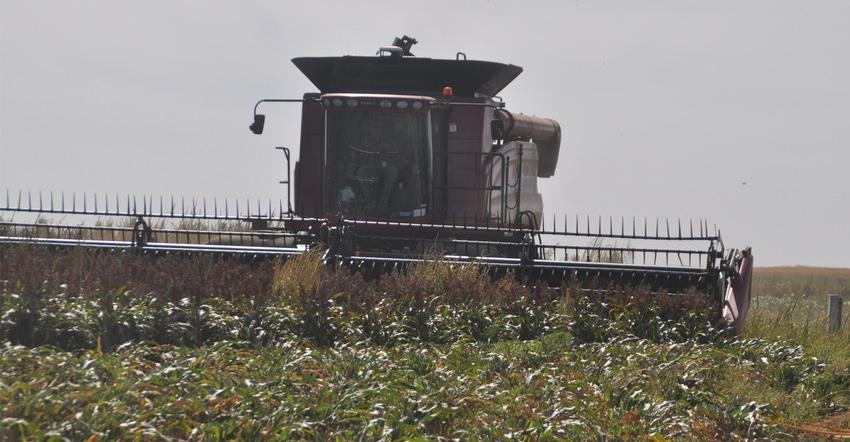July 25, 2019

Researchers at Kansas State University just scored a $2 million investment to help them find ways to increase the yields of water-efficient crops such as sorghum.
Half of that investment, $1 million, comes from the Foundation for Food and Agriculture Research through a Seeding Solutions grant. The other half comes from matching funds raised by K-State, the Kansas Grain Sorghum Commission, Corteva Agriscience, the Collaborative Sorghum Investment Program and the University of California.
FFAR highlighted the importance of improving yields of water-efficient crops to help them become more competitive, pointing out that 70% of the world’s water is used in the production of food and fiber.
Many regions in the U.S. struggle with water scarcity, which threatens ecosystem sustainability and farmers’ livelihoods. To combat the effects of water scarcity, farmers need access to more diversified farming systems that balance water conservation with crop productivity and environmental sustainability.
Crops such as sorghum can diversify the farming system to balance conservation with productivity while supporting the vitality of rural communities. However, the use of these crops has declined partly because of the lag in genetic gain for minor crops when compared to other crops such as corn and soybeans.
Scientists have developed a genome-to-phenome (G2P) breeding approach that combines crop modeling, genomic prediction and managed-stress experiments to increase water-limited yields in corn.
This transformative approach that improves crops using G2P breeding was developed by project collaborator Corteva. Kansas State University is using the FFAR grant to extend the G2P approach in underutilized crops such as sorghum. Researchers are optimistic that if water-efficient crops produce greater yields, farmers will be more willing to diversify their fields.
“This project has the potential to increase yields of crops that grow using less water, and when planted alongside leading crops, can better distribute the existing water in the soil and supporting thriving farms,” says Sally Rockey, FFAR’s executive director. “Using this new approach, Kansas State can boost yields and conserve limited water resources. This work could be a breakthrough for sustainability and profitability.”
Researchers are using sorghum as a model to determine how the G2P breeding approach can effectively lay the groundwork for increased yields for water-efficient crops. The successful implementation of this breeding approach could increase crop diversity and overall productivity of crops in water-scarce environments. This project engages early career plant breeders and scientists to learn and adopt this breeding technique.
“Getting high yield and water efficiency from the same crop is a challenge, but G2P breeding navigates around the trade-offs,” says Geoffrey Morris, associate professor of agronomy at Kansas State University. “We’re excited to bring the G2P approach to sorghum and other water-efficient crops.”
FFAR’s Seeding Solutions grant program is an open call for bold ideas that address a pressing food and agriculture issue in one of the Foundation’s Challenge Areas. This research supports FFAR’s 2018 Overcoming Water Scarcity Challenge Area, now the Sustainable Water Management Challenge Area. FFAR’s work in this area focuses on increasing water availability and water efficiency for agricultural use, reducing agricultural water pollution and developing water reuse technologies.
Source: Kansas State University News Service, which is solely responsible for the information provided and is wholly owned by the source. Informa Business Media and all its subsidiaries are not responsible for any of the content contained in this information asset.
You May Also Like




